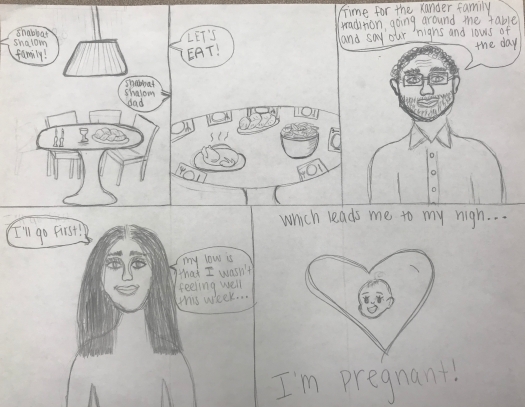Due: March 25
Tag: sk7
Over spring break, be on the lookout for a moment that is worth representing in a comic — watch for some sort of small adventure you might take, or a conversation you are part of, or a conversation you hear, and as you come upon them take notes for yourself and maybe make quick little sketches or take photos to capture images for later. Your story does not need to be momentous. You do not need to be able to fully grasp its significance, such as it is. But watch for a story that seems to be a little window into some sort of meaning or that might show something interesting to readers.
Then create a short comic that portrays that moment as truthfully as you can in a way that combines both words and images.
If you’d like, you can make your comic like “Remind Me” from Palestine (41-50) and include many words to only a few images. Or you can make a comic with only a few words. You can use photographs or draw something or create some other sort of visuals. You can tell a funny story or a sad one, or draw on other emotions.
The only two firm requirements are that your comic needs to have words and images and it needs to show something true. With the full understanding that “truth” is a complicated and contested state of being. (Your story does not have to be a true war story; it only needs to be true.)
Once your comic is completed, publish it to your site as a post. Write a brief reflection about your writing process for this post. How did you know when you had found the right story for your comic? How difficult was it to tell a true story in a brief comic? If you think of Spiegelman and Sacco as outlining two poles of some spectrum defining different approaches to telling true stories in comics, where does your comic fall along that spectrum? What were the most important choices you made along the way of creating your comic?


